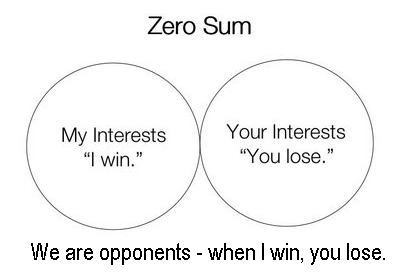I have been addicted to American politics since the Kennedy-Nixon Presidential debates in 1960. But I have never seen such a raucous show as now. What do we make of the horrendous Presidential election that we just muddled through? If it did anything it surely upended the applecart.
The unscripted, unpredicted end was jolting as a lightning bolt. And in our shell-shocked state we are now totally rapt in parsing how it came to pass, why our better heads failed to see it coming, and how it might shape our future. What kind of a tomorrow awaits us?
The past offers very few helpful hints, a likely one being the 1948 Truman-Dewey Presidential face off. The Trump-Clinton imbroglio will engage us just as long and leave us even more mystified. The 2016 campaign was heavy with policy issues but almost entirely devoid of any policy considerations or meaningful platforms.
The campaign, littered with reciprocal abuse by the contenders, was deriding and belittling, imaginatively seasoned with personal innuendo. A time worn adage reminds us that in rank-order of value most people talk mainly of people, others talk of things, a rare few focus on ideas.
Let's briefly visit the question of "Why" and then explore a plausible connection to Sikhs and Sikhi today.
Conflict is as common to human existence as love, pleasure, hate, desire and passion - the yin and yang of life. Both sides of the coin are endemic in a vibrant community in full measure. We, also, face two essentials. A community cannot thrive without bonds that unite a people and define common ground, it's the glue that makes existence possible. Watch that it does not set to the consistency of crazy glue that impairs function and allows no inlet or outlet. A hermetically sealed cocoon threatens our survival. On the other hand, strong bonds must retain flexibility and elasticity; only then can a people thrive.
The imperatives of survival trump all else; the first impulse when a conflict lands on our plate is to fall back on game theory and economic models, a zero-sum game. A mathematical representation of any conflict, it posits that each participant's gain or loss in any transaction is exactly counter balanced by loss or gain of the other participant(s).

This mathematical model from Game theory evaluates decision-making in any competitive situation. In the simplest form, the game involves only two players, and is labeled zero-sum game because one player wins whatever the opponent loses.
The Trump-Clinton Presidential campaign seemed entirely a zero-sum game. Sounds simple, but it's not. The devil is in the details.
In the rhetoric of a zero-sum battle between "us" and "them," we soon careen into a binary choice. The losses of one player precisely equal the gains of the other. For a human relationship, is it the end of the beginning or is it the beginning of the end? Remember that the journey of a people is never linear; it zigs and it zags even though the shortest distance between two points is always a straight line. Furthermore, our minds are not tabula rasa; generations of grime distorts our vision and tactics.
The inevitable result is a fragmented people united by monumental rage against each other. Seemingly this confronts us today in post-election United States. To my mind the reality of our worldwide Sikh nation seems to have much in common with this.
In most human interactions - individual, community, or family based, the driving imperative is the zero-sum model such that all protagonists in any interaction become clearly labeled as winners or losers. Now, look at how splintered our Sikh community is. Is that why our gurduaras and related institutions are largely dysfunctional? Is that why we make news by our disputes punctuated by violence, legal shenanigans, and a growing multiplicity of gurduaras, but not by any sense of community cohesion? Thus are winners and losers defined.
Often, I see zero-sum games at very personal levels between long married couples and even siblings; such is life. Just visualize a couple in the midst of a raging existential conflagration (a divorce?) that brooks no survivors. It seems that far too many of our institutional struggles for power evolve into veritable wars as the only satisfactory ends. The tactics and weapons deployed are often aimed to demean, diminish, vilify, dehumanize, and destroy the enemy.
We forget that rivalry should spark increased activity. Instead honest activity and vitality are rejected. The goal becomes not to outperform a rival but to diminish the other as a mark of one's success. Thus are winners and losers counted and we don't take any survivors.
This is how the zero-sum game works. Be clear that I am not advocating community wide homogeneity of opinion and unanimity of thought, that would be a regressive, not a progressive step. We need to nurture and celebrate our differences, they hold the key to progress.
In any language, culture, or relationship -- political, religious, hierarchical or of blood - there is a defining modus operandi; a prerequisite should be the need to persuade, not to compel. But is it?
I rest my case by asking you to briefly look at the major religions of humanity, including Sikhi. Marvel at the schisms that have shaped and coarsened them. There is nary a one that does not show subdivisions and sects. And rarer than hen's teeth are those that have not spilled oceans of blood either in their own defense or in trying to convince others of "our truth" as the only way.
That is the root of and the route to a zero-sum game. History warns us how crude it is. Major religions seem to believe, teach, and practice the model of zero-sum game; hence they are wedded to an extreme degree of proselytization, even at the point of a gun. Look at Christianity and Islam for such an emphasis, hence their history naturally speaks of Crusades and Jihads. Judaism does not seek conversions even though it casts the Jews as a uniquely chosen people; it doesn't actively proselytize. Sikhi, too, does not practice or preach proselytization even though it welcomes converts to its cause.
Consistent with the zero-sum game theory, most religions have aggressively intolerant attitude to internal religious subsects as well. I add that Sikhi does not teach intolerance of other religions, even though it has its own subdivisions; thus, internal conflicts can, at times, surface.
Sikhi teaches this instead: Life demands the knack of consensus building. The ability to negotiate, compromise and navigate through vast amounts of information that knocks at our door every minute of every day, and the rigor to deal with it as a complex challenge.
Look at the overwhelming emphasis on congregation or sangat in Sikhi. From a myriad that are available, I offer you two citations from the Guru Granth: It is in the collective that the Infinite is experienced (Mil such sangat khoj dasaai, vitch sangat Har prabh vasay jio, p 94), and one becomes like the company one keeps (Jo jaisee sangat milay so taeso phal khaaye, p 1368). The Sikh savant Bhai Gurdas in blunt words reminds us that some company leads to liberation while others damn us to hell (Kahoo ki sanagat mil Jeevan mukt hoi kahoo ki sangat mil jampur jaat hae, Bhai Gurdas Kabit 549). The driving principal of this nation, E Pluribus Unum, too, powerfully reiterates ideas of the power and wisdom inherent in collectivity. In collectivity then we discover the art of compromise and negotiation, of transcending individual differences and recognizing the superiority of the collective process for the common good.
Human collectivity rejects the idea of zero-sum modeling of human behavior which inevitably produces winners and losers. Don't forget that there are win-win situations as there are lose-lose situations; both are variations on the zero-sum theme; the former alternative is the more desirable. Largely though, zero-sum behavior rules where naked competition is the principle.
Mostly, the model applies to an interaction that gives us winners and losers. But never where a collective dynamic structure of a group or community operates with the foundational idea of binding a human collective in love (Guru Gobind Singh: Jinh prem keeyo tin hee prabh paayo, Akal Ustat). Keep in mind that love and hate are not the opposite sides of a coin, indifference stands in stark contrast to both emotional states.
I offer you a simple aside: Largely, religions define their roots in a gloried, mythical past. As a result, we often interpret religions in the exaggerated and magical idiom of the past and often a totally imaginative but fictitious idea of a non-earthly future.
A mind rooted in science on the other hand, though caught in its own web of blind alleys, is committed to shining a light on failings of the past and fixing them. Thus, the pursuit of science is never a zero-sum game despite rivalries in scientific endeavors.
A very brief defense of the fundamentals of religion would posit that faith, as opposed to science, deals with a reality that we can never fully define, entirely describe, or fully capture and comprehend. Neither honest faith nor good science is a zero-sum game. Victory lies not in diminishing others but in expanding the embrace and reach of humanity.
So, do not think of the superiority of one over the other. That would be total nonsense. Science and religion remain complementary. Both enrich humanity. They express the same fundamental truths in different languages and frames of reference, but ultimately they are saying the same thing.
What makes or rips our national social fabric? I offer you a no brainer:
The narrative needs to shift from "I" to "We." The word "We" as in We the people, We the Sikhs or We a family is a "Big Tent" pronoun. The defining idea is to treasure a model, not of a zero- sum game with winners and losers, but one where the whole becomes greater than the sum of the parts - a win-win interaction.





